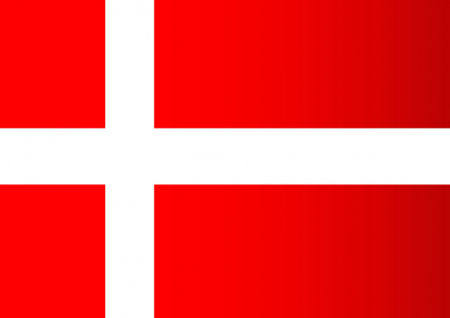Denmark – Action plan against Antisemitism (January 2022)
In 2020, the government set up a working group to come up with proposals for how to fight Antisemitism in Denmark. Based on the working group’s proposals, the government has prepared this action plan.
The action plan reflects that there are no simple measures against the scourge of Antisemitism. The
security efforts around the Jewish institutions are an important focal point in the plan. The same is
true of efforts to raise awareness about the Holocaust and Jewish life in schools and educational
institutions.
The action plan is as broad in its initiatives as it is important.
Measures
- More research on Antisemitism
- Strengthened monitoring of antisemitic incidents in Denmark, inter alia on the Internet
An annual grant of DKK 300,000 is afforded to the Jewish Community’s Department for
Mapping and Knowledge Sharing of antisemitic Incidents (AKVAH). The grant goes to reinforce
the existing monitoring of antisemitic incidents, including those on the Internet, as well as to
work to support and guide people who have been exposed to an antisemitic incident. - Mapping the knowledge about and research into Antisemitism
New research on Antisemitism in Denmark must be initiated. Among other things, a research
project, which examines the current prevalence of Antisemitism, its forms of expression,
causal factors, mechanisms of action and influences in Danish society will be initiated with the
Danish Centre for Prevention of Extremism, so that it becomes clearer where Antisemitism
thrives in society. At the same time, current research into Antisemitism shall be mapped both
internationally and in Denmark. The mapping will give the authorities the opportunity to assess
the need for further research in the field in the coming years.
- Strengthened monitoring of antisemitic incidents in Denmark, inter alia on the Internet
- Children and young people knowledge about the Holocaust and Antisemitism
- Compulosry classes about the Holocaust in primary and upper secondary education
A change is made in the primary school’s history canon, so that the existing point, the August
Uprising and the Jewish Action 1943, is rewritten to also contain the Holocaust. The change
will make it compulsory to teach about the Holocaust in the history subject in primary schools.
Changes are being made to the curricula for the history subjects in the upper secondary
educations, so that teaching about the Holocaust and other genocides is made compulsory. - Education and remembrance of the Holocaust and other genocides shall be promoted
The task of promoting educational activities and remembrance of the Holocaust and other
genocides continues and is developed. Emphasis is shifted from the preparation of materials
to the development of student-engaged teaching activities (e.g., visiting and school services,
Auschwitz Day, etc.) and the development of teachers’ competencies to teach the subject. The
effort is aimed at both primary and upper secondary education. - Teachers must be equipped to avoid exclusion in the school
The work of preventing hate crimes begins in school. The Danish Centre for Prevention of
Extremism and the Absalon University College have previously developed an inspiration catalog
for school leaders and teachers; “Democratic communities – Prevention of polarization and
exclusion in school”. This has been done in close collaboration with the National Agency for
Education and Quality. The inspiration catalog must now be disseminated by improving the skills
of teachers and lecturers in the specific methods that appear in the catalog. - Young-to-young dialogue between denominations must be expanded
The Ministry of Immigration and Integration offers pooled funds to civil society agents with the
aim of expanding young-to-young dialogue between muslims, christians, humanists, atheists
and Jews in schools all over Denmark. This is done on the basis of the experience gained partly
from the young-to-young dialogue efforts, which have been implemented over a number of years
to prevent honor-related conflicts, extremism, etc., and partly from the project “Your faith – my
faith”, which offers visits on both free and primary schools of a guest teaching team consisting of
a Jew, a Christian and a Muslim for the purpose of promoting mutual understanding and respect. - More information about Jewish life and culture in Denmark
Funds are allocated to the Danish Jewish Museum to plan, set up and carry out, in collaboration
with the country’s museums and libraries, exhibitions and debate events on Danish-Jewish
cultural history. Furthermore, funds are set aside for an initiative aimed at young people, where
the country’s folk high schools, libraries, museums, information associations, youth and sports
organizations, etc. are encouraged to contribute with teaching courses, information initiatives
and knowledge dissemination with a focus on raising young Danes’ awareness of Danish-Jewish
cultural history and life.
- Compulosry classes about the Holocaust in primary and upper secondary education
- Preventing Antisemitism in particular Environments
- Specialized counseling courses on Antisemitism and prevention
Danish Center for the Prevention of Extremism strengthens the specialized counseling for
municipalities, schools, educational institutions, housing organizations, associations and
others. In relation to schools and educational institutions, the counseling will take place in close
collaboration with the Ministry of Children and Education and the Ministry of Higher Education
and Science. The counseling will have a special focus on the environments, both online and
offline, where Antisemitism thrives. - Strengthened police training in preventing radicalization and Antisemitism
The Danish Security and Intelligence Service (PET) will strengthen and further develop the
training efforts towards specialized police professional staff and civilian preventers. This must
be done so that employees are better equipped to plan, carry out and follow up on conversations
with radicalized individuals. The purpose is to motivate those involved to take part in a
preventive program, which over time, if possible, will make them distance themselves from
radicalized and extremist environments.
- Specialized counseling courses on Antisemitism and prevention
- Protection of Danish Jews and Jewish institutions
- Maintaining necessary security efforts to protect Jews and Jewish institutions
The continuing serious terrorist threat, including targeting Jews and Jewish targets, shows that
there is still a need to maintain and support security measures and guarding in order to protect
Jews and Jewish institutions. The action plan ensures that the necessary level of security around
Danish Jews and Jewish institutions is maintained in the future.
- Maintaining necessary security efforts to protect Jews and Jewish institutions
- Strengthened focus on better guidance in connection with Antisemitic incidents in schools and workplaces
- Appointment of national coordinator to combat Antisemitism
A national coordinator is appointed with responsibility for coordinating the Danish efforts
against Antisemitism, including ensuring the implementation of the action plan’s initiatives and
follow-up when the initiatives have been implemented. The coordinator will also have to follow
the work of combating Antisemitism under the auspices of the EU and have regular contact with
the Jewish community in order to uncover the perceived Antisemitism among those who are
exposed to it. The national coordinator will be a high-ranking employee of the Ministry of Justice. - Training of supervisors in the Danish Working Environment Authority on Antisemitism and offensive acts against other religious minorities in the workplace
The Danish Working Environment Authority’s supervisor must be equipped to identify Antisemitism and offensive acts against religious minorities in the workplace. This will ensure that the supervisors respond quickly when there are signs of abusive actions against religious
minorities.
- Appointment of national coordinator to combat Antisemitism
- Foreign Policy Focus on Combating Antisemitism
- Increased focus on Antisemitism through dialogue with other countries
In the future, the Ministry of Foreign Affairs will increase its focus on Antisemitism as part of
the efforts of the special unit for freedom of religion and belief, which the Ministry of Foreign
Affairs launched in 2018, and which addresses issues of freedom of religion and belief and
persecuted religious minorities in its bilateral dialogues with other countries. An increased focus
on Antisemitism in foreign policy will be in line with the need for a new and value-based Danish
foreign and security policy strategy, which is expected to focus on Danish values, including the
advancement of democracy, human rights, equality, law and duty and committed communities. - Increased Danish involvement in the IHRA collaboration
Denmark will strengthen its participation from all relevant ministries, including the national
coordinator for Antisemitism, in the work of the international forum International Holocaust
Remembrance Alliance (IHRA). - International celebration of the 80th anniversary of the rescue of the Danish Jews
A major international celebration will be held in 2023 of the 80th anniversary of the rescue of
the Danish Jews. Such a celebration will focus on how the society can prevent genocide and
promote the right to free thought and the practice of religion. There will also be a focus on
disseminating research into the processes leading up to genocide. In continuation of this, the
website folkedrab.dk, where one i.a. finds knowledge about the killing of minorities around the
world, shall be maintained and updated.
- Increased focus on Antisemitism through dialogue with other countries



 NOA is co-funded by the Rights, Equality and Citizenship Programme (2014-2020) of the European Union
NOA is co-funded by the Rights, Equality and Citizenship Programme (2014-2020) of the European Union